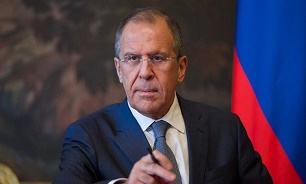Anti-Assad Faction’s Stranglehold on Ghouta Refugees Puts Ceasefire in Doubt
 "I will dare to disagree with Jeish al-Islam’s statement that Resolution 2401 does not allow to let civilians flee Eastern Ghouta and, therefore, they, accepting Russia’s proposal on daily five-hour humanitarian pauses, do not let civilians who are willing to leave Eastern Ghouta do so," Lavrov said following talks with his French counterpart Jean-Yves Le Drian on Tuesday, TASS reported.
"I will dare to disagree with Jeish al-Islam’s statement that Resolution 2401 does not allow to let civilians flee Eastern Ghouta and, therefore, they, accepting Russia’s proposal on daily five-hour humanitarian pauses, do not let civilians who are willing to leave Eastern Ghouta do so," Lavrov said following talks with his French counterpart Jean-Yves Le Drian on Tuesday, TASS reported.
According to Russia’s top diplomat, the resolution’s tenth paragraph demands lifting the siege from a number of inhabited communities, including Eastern Ghouta.
"This paragraph says that all those who imposed this siege are to ensure the delivery of humanitarian, aid, medicines and everything necessary and should not hinder those who want to leave these areas voluntarily, including Eastern Ghouta," the Minister added.
"The fact that Jeish al-Islam adheres to such a stance make one think how sincere it was when, as Jean-Yves told us, it informed the UN Security Council president that it was willing to comply with Resolution 2401," Lavrov stressed.
According to al-Watan newspaper, head of the political wing of the Jeish al-Islam group Mohammad Alloush said the groups agreed to observe the daily humanitarian pause declared by Russian Defense Minister Sergey Shoigu on Monday. However, Alloush flatly rejected Russia’s proposal to use it for civilians’ exodus, alleging that this is not envisaged by the resolution passed by the UN Security Council on February 24.
Shoigu earlier said that a daily humanitarian pause had been declared in Eastern Ghouta on instructions from Russian President Vladimir Putin as of February 27 from 09:00 (10:00 Moscow Time) to 14:00 (15:00 Moscow Time). However, according to Vladimir Zolotukhin, a Spokesman for the Russian reconciliation center, the first humanitarian pause has been disrupted by militants, and not a single civilian could leave the area because of shelling.
